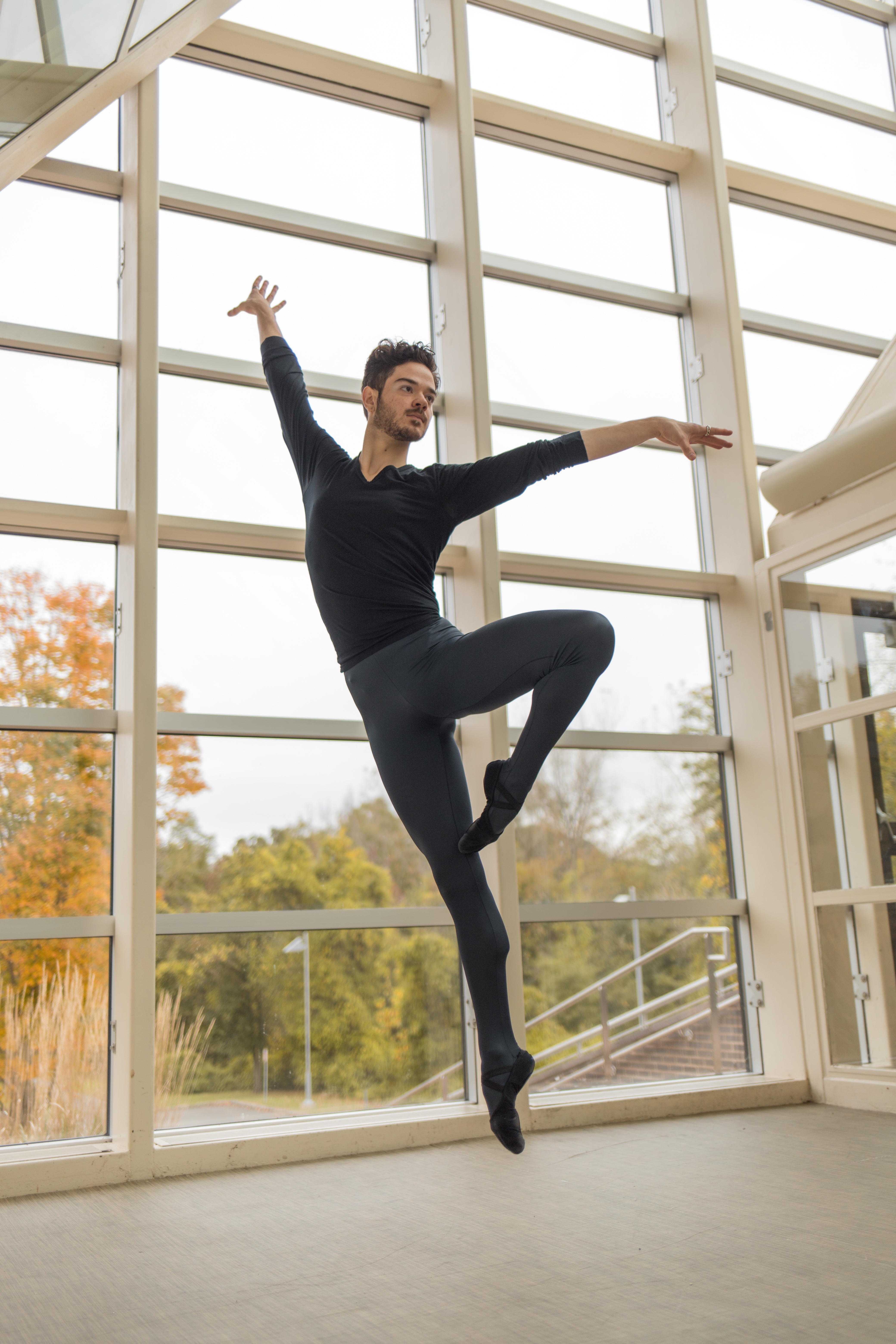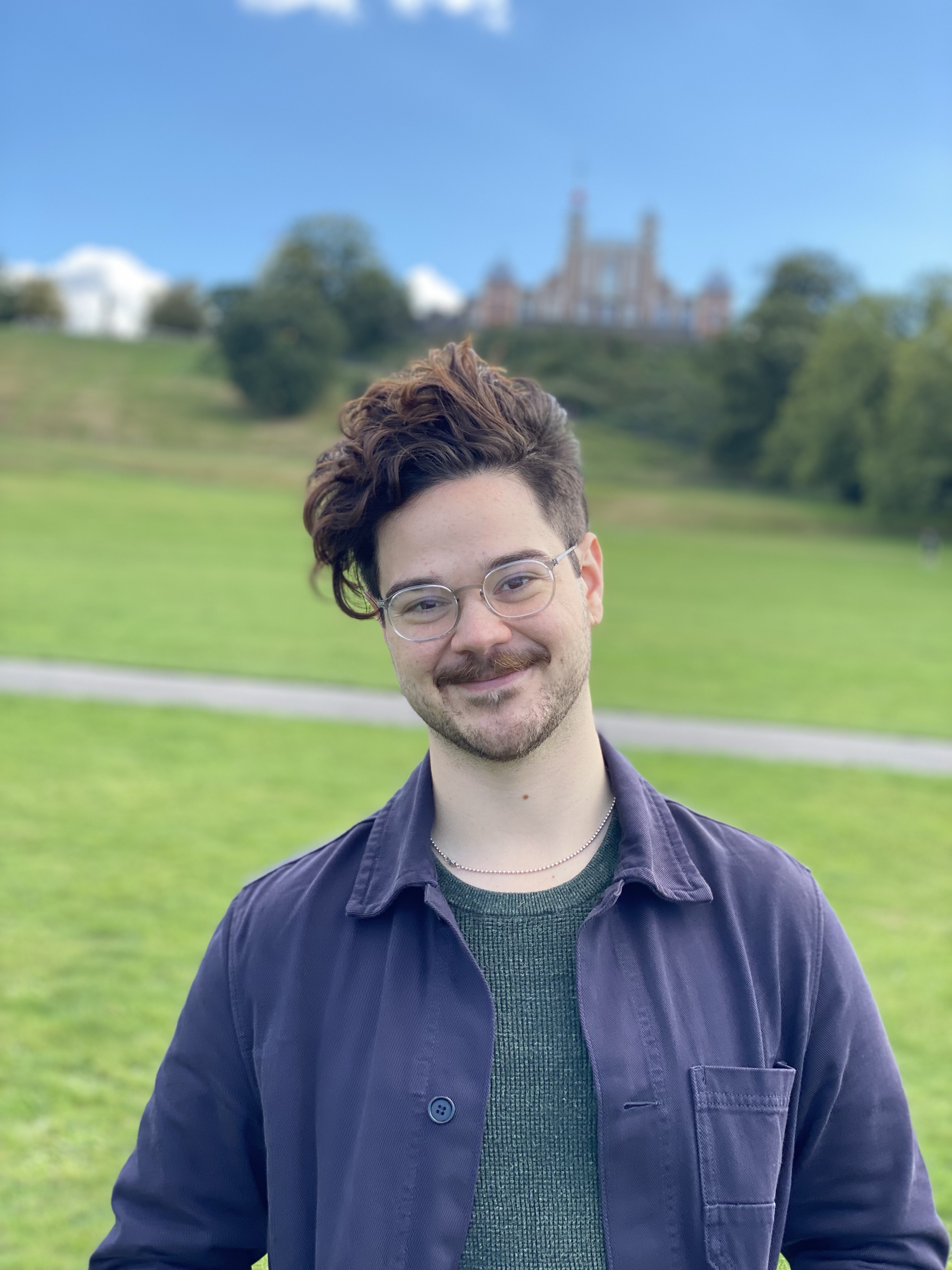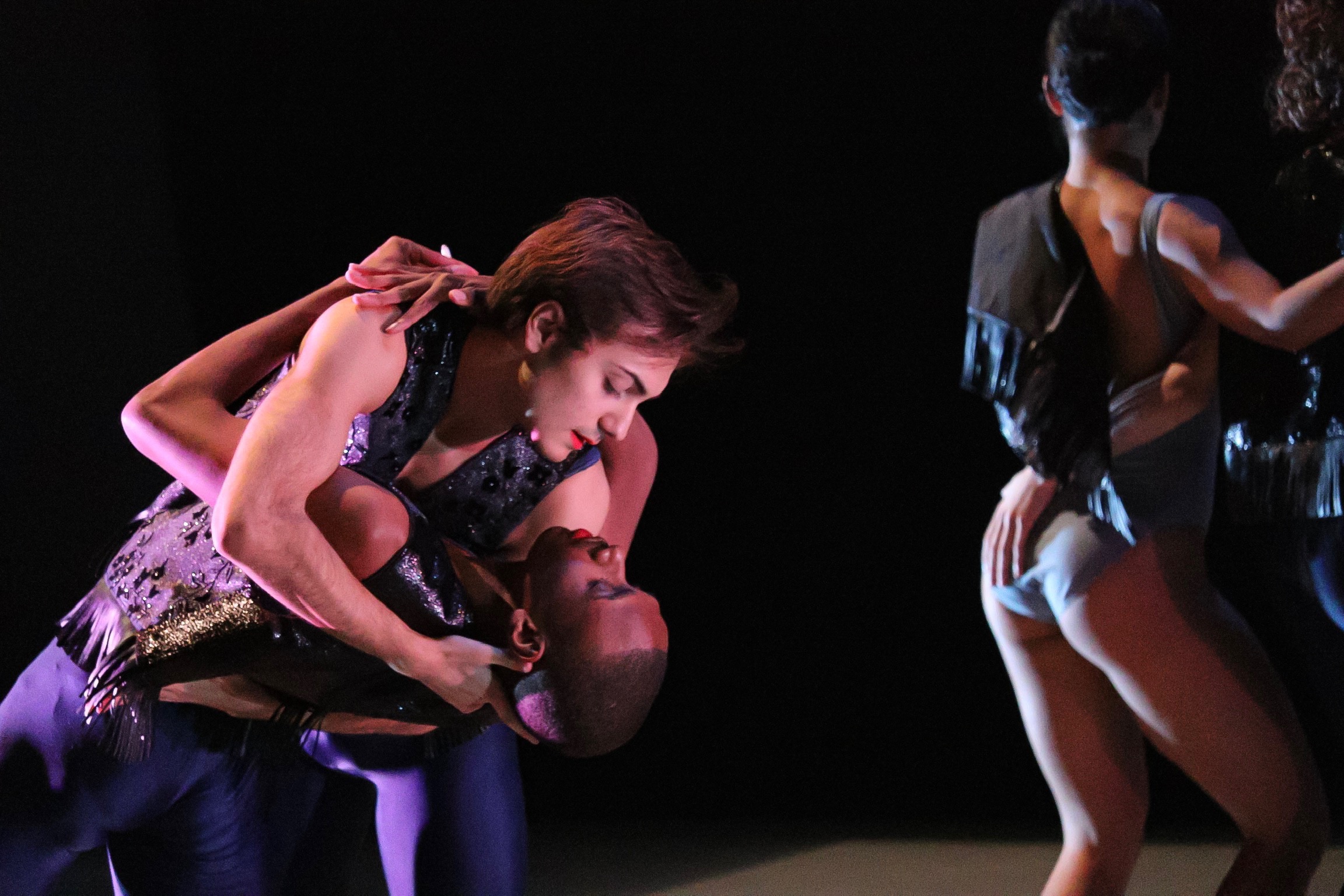Words by Katie Hagan.
“I think artists have all had some weird reckoning over the past year” contemplates dancer and Trinity Laban Fulbright Will Byram as we speak one afternoon. “We look at the world and see the condition it is in and feel bad for dancing in our rooms. But, we can’t pull this into comparison with dance and deny its importance. Dance and dancing can say and do so much for many people.”
Born in rural Mississippi — “right in the Bible belt!” as he expresses — Will Byram has danced for as long as he can remember. His mum put him in classical ballet at a young age, and from then, he has explored and experimented with various dance styles and approaches.
After graduating from high school, Will was accepted onto the undergraduate programme at the Conservatory of Dance at Purchase College in New York. “It’s like a poor people’s Julliard!” Will jests self-deprecatingly. “But Purchase has many crossovers with Julliard, mainly in terms of having similar teachers and training.”
As with many students who study at an institution, whilst the experience can be affirming, it can make you rethink whether your chosen pathway is living up to what you’d once imagined. Sometimes, it’s only when you’re really in something that you see it for what it is. “Whilst it was what I wanted, at the time I wasn’t sure if what I was doing was dance anymore — or if it ever was.”
Fortunately enough for Will, he wasn’t at all jaded. Although he graduated during the pandemic, which had its challenges professionally he admits, his realisation that his dance career could take him in a different direction than expected, came some time before.
“For a long period I was thinking about my career and what I could do in dance; where I could belong.”
“I had always wanted to teach in higher education, and semi-recently I have realised I want to pursue a more directorial, curatorial eye. This comes back to when I was a kid, putting on annual operas or ballets for my mom. I’d really go to town, spray-painting backdrops, playing with dolls and asking for costumes. In a way, all of these things were instruments to achieving my vision.”

Will is the incumbent Fulbright scholar at the dance conservatoire Trinity Laban, an award that gives one US citizen the opportunity to study in the UK. “At my performing arts high school, I had a teacher with an MA from Trinity Laban. Just recently I performed at the renowned Battery Dance Festival in New York, which is run by ex-Fulbrighter, Jonathan Hollander. Fulbright was always inadvertently in my life somehow so it’s interesting to finally be here after imagining it for so long.”
Will started his MFA in Choreography last year. Since being at Laban he has already choreographed the conservatoire’s opera scenes programme in collaboration with the vocal department — and there is far more in store.
His next focus will be digging into his research on deconstructing gender and male fragility. “This idea is roughly titled Big Boys Cry. I wrote a script that has a choreopoem or choreoplay style. It is based on a Human Rights Watch interview from the 90s that featured men mostly from the American South who spoke about their experiences with sexual assault. They are mostly prison stories that remain untold, and I wanted to display these narratives and the resilience of the survivors,” he says.
In the script Will plays with the problematic reality that many of the perpetrators do not get prosecuted and the victims live in silence. It is a reality that many of us know about, yet little is done or exposed.
The Big Boys Cry blueprint was brought to life a few years ago when Will presented it online at a regional festival in New Orleans. A few years on, he’s eager for it to be performed in real life at a large opera house, where many of the people watching are the ones that need to hear its harrowing story.
“I really want it to be performed in a classical form. I know some might say the forms aren’t accessible, but there’s something about a performance in a proscenium space that demands public and media attention. It needs to be in a proscenium where people are coerced into sitting and watching, as opposed to an installation or immersive piece where people have more agency as to whether to listen or not.”
“When I was at Purchase College, I had some experiences that made Big Boys Cry super pertinent. It was important for me to tell this story and I want to do so in the right way.” He will be able to do just that when Big Boys Cry is performed in London this summer.

As a student in NYC, Will was able to absorb the city’s rich dance culture. As well as performing at Battery Dance Festival, he participated in Dancers Responding to AIDS, a big organisation in New York. “It was founded by someone who went to Purchase College in the 80s,” Will says. “Dancers Responding to AIDS is a brilliant organisation and advocate for its community.”
With such a vibrant experience in NYC, what are Will’s reflections on the conditions of dance in his hometown?
“Unfortunately there are minimal community theatres in the American South,” says Will. “There are hardly any public arts in schools as they aren’t state-funded. It’s no surprise that the little presence art does have is all privatised. Whilst there are great grassroot organisations, they are mainly in more urban areas in New Orleans and Atlanta.”
“Out in the sticks where I grew up, people simply don’t know what dance is. They don’t know ballet, so they definitely don’t know contemporary dance! They know Broadway but perceive it as frivolous or homosexual-orientated.”
Although dismayed Will wasn’t discouraged. There are some hidden pools of art to explore in the south. “When covid started I moved from New York to Savannah in Georgia. It’s a super old town. Even though there is no dance, there’s a hugely creative energy around fine arts, crafts and so forth. In Savannah, creativity is supported through actual funding. If I didn’t make Fulbright I was definitely going to start teaching there.”
“I’d like to go back at some point. Me and my partner who is nonbinary really see a lack of spaces in the South for queer, trans and nonbinary people. There’s a huge need for it.”
“I hope to create a place that I and my peers would have needed when we were younger; a non-profit organisation for young people coming out as gay, queer, trans. Think a ‘Willie’s cabaret’ kind of thing, or along those lines anyway! It would teach them about performing arts, self-expression, beauty, plus the history of people that are celebrated for their identity and sexuality.”
Header image: Photo by Angelina Bartolozzi & Meg Brusso.
